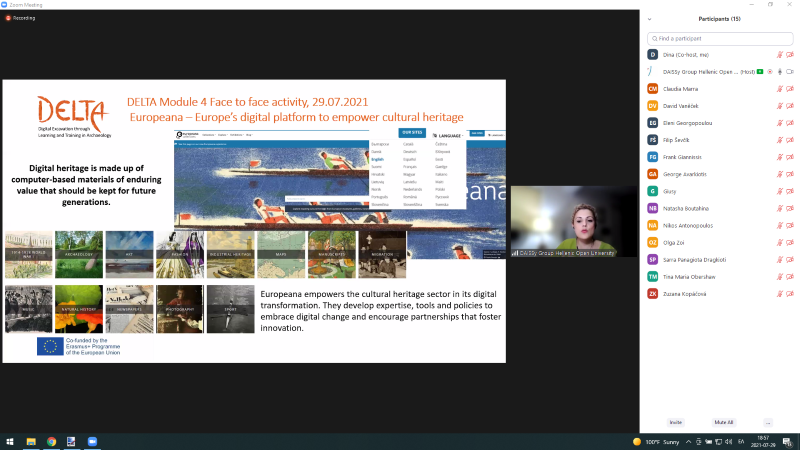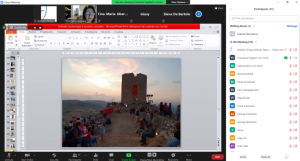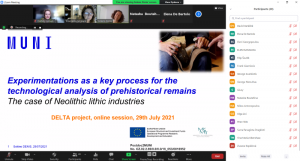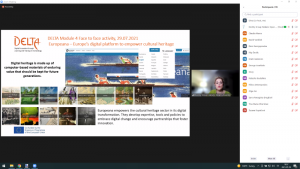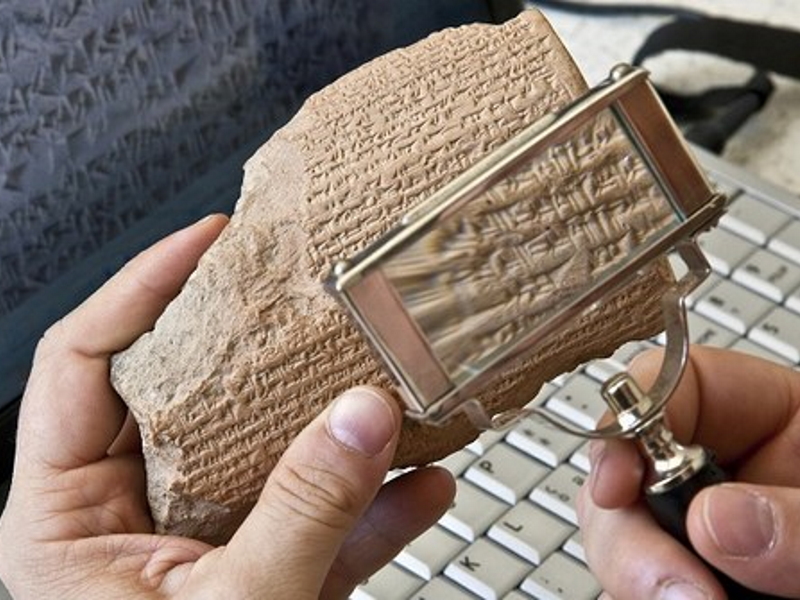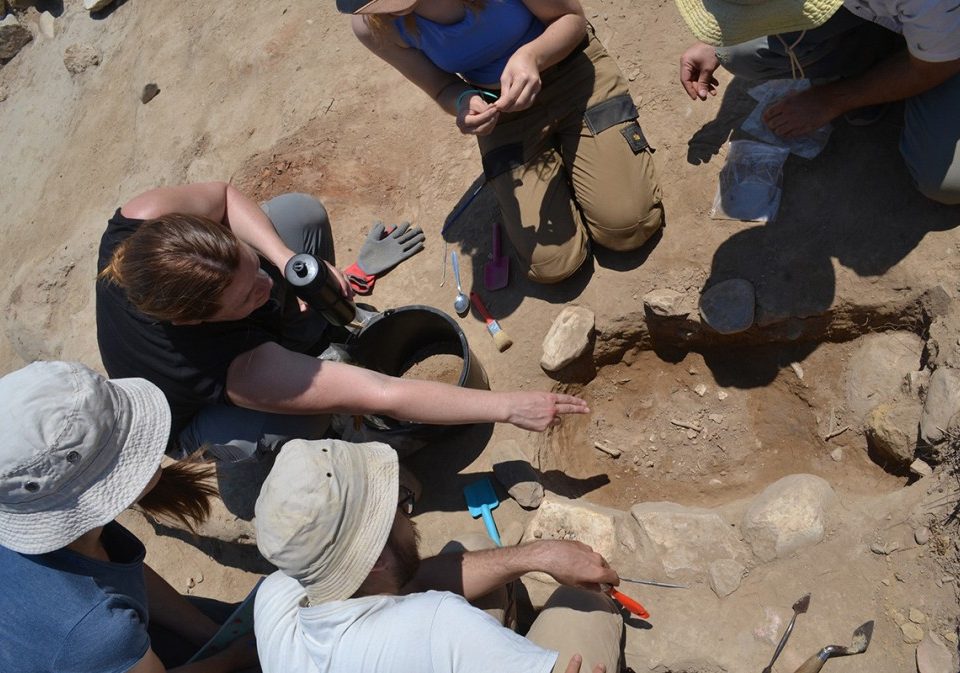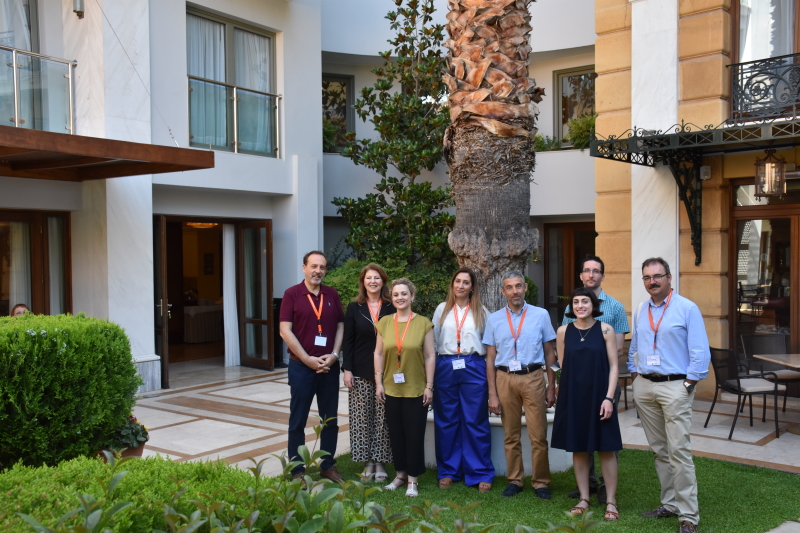Module 4 concluded with Face-to-Face activities, which were carried out online due to the pandemic. These activities aimed at improving the knowledge gained by studying the learning materials, and they were structured in a way which combined theory and show cases of public and experimental archaeology.
During the four-hour session of the first day, in July 16 2021, students were introduced to the principles of public archaeology. The session begun with the presentation of the Module 4’s Tutor, Mrs. Panagiota Polymeropoulou, HOU, who talked about the content of Module 4 and the organization and learning objectives of the five Units of the Module “Open-Air Museums and Experimental Archaeology”. Also, Dr. Marlen Mouliou (Assistant Professor of Museology, NKUA) as responsible of the educational programmes at Plasi, Marathon, lectured with a presentation entitled “An overview on definitions and practices of Public Archaeology, followed up by a focus on a specific case-study from the open excavation site of Plasi, Marathon (Greece)”. She moderated the group assignments of the DELTA participants who worked in teams on a challenged-based hypothesis of how to develop Public Archaeology activities. In total, fourteen (14) students participated in the activities of the first day.
The second virtual four-hour session, was held in July 29 2021. More specifically, in the first part of the virtual session, Dr. Francesca Sogliani, Professor Department of European and Mediterranean Cultures – DiCEM, University of Basilicata, Italy, presented the “Festivalia. The Archaeology Storytelling", where she explained how public archaeology is practiced with Open Days within the SATRIANUM project, and students were able to learn more on the case of public archaeology in Italy. Moreover, Dr. Solène Denis, Post-doctoral Researcher in Masaryk University, Department of Archaeology and Museology, Czech Republic presented a case of Experimental Archaeology with the title “Experimentations as a key process for the technological analysis of pre-historic remains. The case of Neolithic lithic industries”. During the second part of the session, students were able to attend the lecture entitled “Lecture on Live Interpretation and ICT in cultural organizations and sites” by Mrs. Panagiota Polymeropoulou, Tutor of Module 4. The students were able to know more on the content of Module 4 especially on learning material of Unit 3, Unit 4 and Unit5. In the final part, the participating students were able to work on questions regarding the visitation of museums/ sites and the importance of web presence of the cultural organisations. In total, twenty (20) students participated in the activities of the second day.
F2F activities were mandatory for students from the National and Kapodistrian University of Athens, the Masaryk University and the University of Basilicata. All the other students were free to join the activities.

